“Building domain authority is like constructing a sturdy foundation for your online castle.”
Brian Halligan
In the ever-evolving digital landscape, the concept of domain authority has emerged as a beacon of online credibility and success. As businesses strive to establish their presence amidst the digital noise, building domain authority has become a paramount goal. However, the path to authority is no longer paved solely by traditional link building tactics. A more comprehensive and strategic approach is required to truly harness the potential of domain authority. This foundation goes beyond the mere accumulation of backlinks, delving into the realm of content quality, thought leadership, social engagement, collaborations, and real-world evidence.
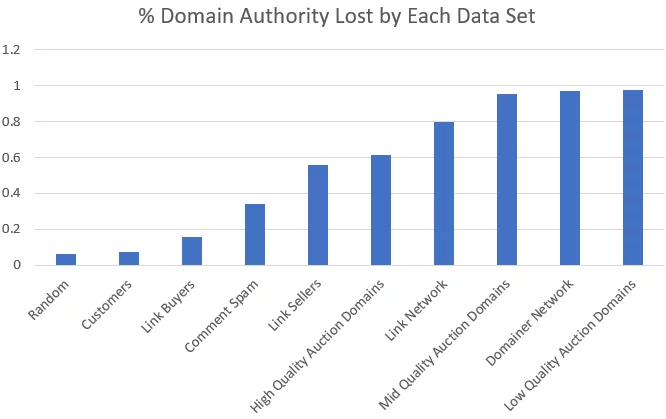
To succeed in the digital realm, one must embrace a holistic strategy that not only appeals to search engines but resonates deeply with the target audience. The journey to building domain authority is a culmination of impactful efforts, each contributing to the larger picture of online credibility and recognition.
By adopting a multi-pronged approach, businesses can unlock the full potential of domain authority, ensuring a lasting impact in a dynamic online landscape. As we delve into the nuances of this approach, let’s explore the strategies that propel us beyond the confines of link building and towards a more authoritative and influential online presence.
Domain Authority (DA): Understanding Its Significance and Calculation
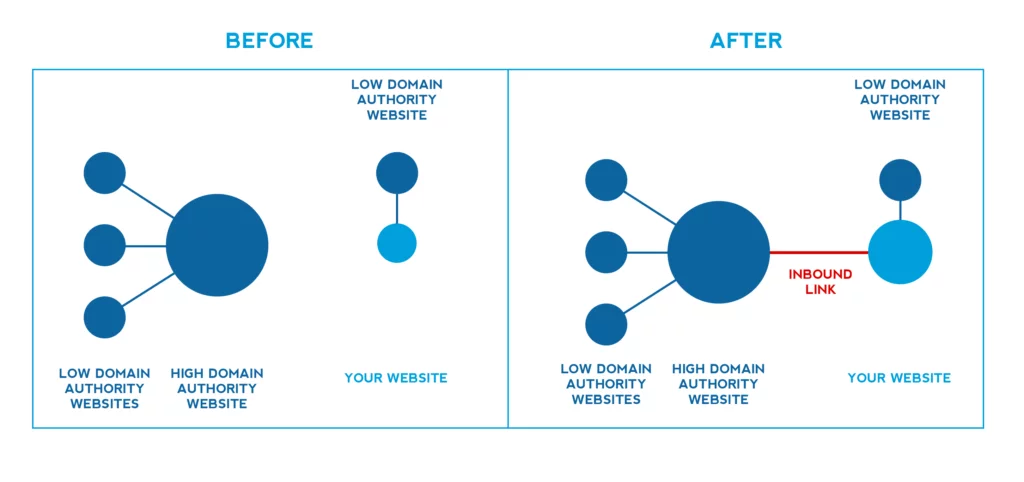
Source: TheClickHub
In the realm of search engine optimization (SEO), Domain Authority (DA) emerges as a crucial metric that holds the potential to influence your website’s search engine rankings and organic traffic. This numerical score, ranging from 0 to 100, provides an indication of your website’s authority in the digital landscape. The higher your domain authority, the greater your chances of securing higher rankings on search engine result pages (SERPs) and attracting a larger share of organic traffic.
Originating from Moz, the concept of Domain Authority has inspired other companies to develop similar metrics. These metrics, also scaled from 0 to 100, assess domains based on a multitude of factors, providing a comparative rating that reflects the perceived authority of a website. This concept traces its roots to PageRank, introduced by Larry Page, one of Google’s founders. PageRank initially gauged the importance of webpages and websites, laying the foundation for the notion of ranking domains based on their authority.
Decoding Domain Authority (DA):
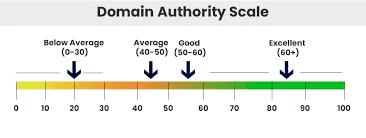
Domain Authority, denoted as DA, encapsulates a numerical representation of a website’s potential to rank favorably on search engines. Ranging from 0 to 100, where a higher score is indicative of stronger authority, DA is an attempt to predict a website’s performance in search engine rankings.
However, it’s crucial to note that Domain Authority is distinct from Google’s ranking score, known as PageRank. While PageRank has a direct impact on your rankings, Domain Authority serves as a simulated assessment of your website’s authority. Moz and other DA checker tools endeavor to simulate Google’s ranking algorithm by considering various factors that can influence rankings, resulting in a score that facilitates comparison among domains.
Nonetheless, Domain Authority’s accuracy may vary as it relies on the data Moz possesses about your website, which might not mirror Google’s comprehensive understanding. It’s conceivable for a domain to possess a low Domain Authority while maintaining high rankings on Google.
Key Aspects of Domain Authority:
- Influence of Google Penalties: Domain Authority does not account for Google penalties. A domain under a penalty might experience a decline in rankings, even though its Domain Authority remains high.
- Factors Considered: While Google’s algorithm considers hundreds of factors (some estimates suggest over 200), Domain Authority assesses around 40 factors.
- Challenging to Alter: Changing your DA score isn’t an immediate process. Unlike on-site changes, enhancing Domain Authority demands sustained efforts.
- Logarithmic Scale: Domain Authority operates on a logarithmic scale. Improving from 20 to 30 is more achievable than advancing from 70 to 80.
- Dynamic Metric: Domain Authority fluctuates regularly, making it unsuitable for evaluating long-term SEO performance. It’s better suited for domain-to-domain comparisons.
As a Pro Tip, enrolling in a comprehensive SEO course can offer step-by-step guidance on improving your domain’s authority.
Calculating Domain Authority: The Moz Approach
Moz’s calculation of Domain Authority involves the consideration of 40 signals that impact your website’s performance. These signals encompass:
- Incoming Links: The quantity of inbound links directed to your website.
- Link Quality and Relevance: The caliber of inbound links and their alignment with your content.
- Content Quality: The overall quality of your website’s content.
- Social Signals: The popularity of your domain across social media platforms.
- General SEO Performance: Your website’s SEO performance as a whole.
Discovering Your Domain Authority:
To unveil your domain’s authority score, you can employ Moz’s domain analysis SEO tool. By entering your domain, you can gain insights into your Domain Authority score and its implications.
Page Authority (PA): A Parallel Metric
Distinct from Domain Authority, Page Authority (PA) focuses on specific pages rather than domain-wide metrics. It predicts the strength of a particular page and its potential to rank on search engines. A website with high-authority pages typically possesses a higher Domain Authority score.
Strategies to Improve Domain Authority
I. Quality Content Creation

- Creating In-Depth and Valuable Content: In the realm of authority building, content reigns supreme. The foundation of this strategy lies in crafting content that goes beyond the surface and provides genuine value to your audience. In-depth content demonstrates your commitment to addressing complex topics comprehensively, positioning you as an industry expert. This could take the form of comprehensive guides, whitepapers, research reports, or in-depth articles that delve deeply into subjects relevant to your niche. By producing content that offers unique insights, detailed explanations, and actionable advice, you establish yourself as a trusted source of information. This not only encourages visitors to spend more time on your site but also boosts engagement and sharing, thereby amplifying your reach and authority.
- Addressing Audience Pain Points: One of the most effective ways to build authority is by directly addressing the pain points and challenges faced by your target audience. Identify the common problems, questions, and concerns that your audience encounters within your industry. Develop content that not only acknowledges these issues but also provides practical solutions and guidance. By empathizing with your audience’s struggles and offering actionable solutions, you position yourself as a valuable resource that genuinely cares about their needs. This fosters a deeper connection and trust, enhancing your authority as someone who understands and can effectively address their concerns.
- Establishing Expertise Through Content: Every piece of content you create is an opportunity to showcase your expertise. Whether you’re writing a blog post, recording a podcast, or creating a video, ensure that your content reflects a deep understanding of your field. Incorporate accurate data, insightful analysis, and up-to-date information to demonstrate your authority on the subject matter.
2. Thought Leadership and Guest Posting

- Sharing Insights and Original Ideas: In authority building, thought leadership is a beacon that guides your path to recognition and influence. One of the most compelling ways to establish thought leadership is by consistently sharing your insights, unique perspectives, and original ideas within your industry. This requires actively participating in discussions, offering fresh viewpoints, and contributing to conversations that matter. By consistently sharing valuable insights, you not only demonstrate your depth of knowledge but also present yourself as a forward-thinking visionary. This positions you as a source of innovation and inspiration, naturally drawing attention to your authority within the field.
- Guest Posting on Reputable Platforms: Guest posting on established and reputable platforms offers a remarkable opportunity to showcase your expertise to a broader audience. When you contribute guest posts to well-respected websites or industry publications, you’re essentially borrowing their credibility to enhance your own. The association with these platforms validates your authority and reaches an audience that might not have encountered your work otherwise. Guest posting also opens the door to new relationships and collaborations within your industry. Sharing your insights on external platforms extends your reach and increases the chances of other industry experts taking notice of your work, further boosting your reputation.
- Leveraging Expertise for Credibility: Your expertise is your greatest asset in building authority. By consistently sharing valuable content, engaging in thoughtful discussions, and contributing to industry conversations, you’re essentially showcasing your expertise in action. Over time, this active participation solidifies your position as an authority figure. As your reputation grows, your insights become sought after and respected. This recognition translates into invitations to speak at events, collaborate on projects, and contribute to influential publications. These opportunities not only further establish your authority but also create a ripple effect, enhancing your influence and impact within your field.
3. Engaging on Social Media and Online Communities

- Building a Strong Social Media Presence: In the realm of cultivating authority beyond mere link building, a robust social media presence emerges as a pivotal strategy. Platforms like Twitter, LinkedIn, and Instagram offer dynamic arenas to showcase your expertise and engage with a diverse audience. By consistently sharing insightful content, updates, and industry news, you establish yourself as a trusted source of information. A strong social media presence allows you to directly interact with followers, responding to their queries and fostering meaningful discussions. This interactive approach not only solidifies your authority but also humanizes your brand, creating a sense of approachability that resonates with your audience.
- Participating in Relevant Online Forums: Beyond the confines of traditional link building, engaging in niche-specific online forums and communities can be a game-changer for authority building. Platforms like Reddit and Quora provide spaces where you can actively contribute your expertise by answering questions, providing solutions, and participating in discussions related to your field. Participating in these forums not only showcases your knowledge but also places you in direct contact with individuals seeking guidance. Your insightful responses not only establish you as an authority but also attract potential followers who recognize your value within the community.
- Sharing Knowledge and Networking: The process of building authority goes hand in hand with sharing knowledge and networking. By regularly sharing valuable content, such as articles, infographics, and videos, you create a digital footprint that exemplifies your expertise. This consistent sharing not only positions you as a reliable resource but also encourages others to share your content, expanding your reach. Networking within your industry, whether through virtual conferences, webinars, or industry-specific events, offers opportunities to connect with fellow professionals. By actively participating in these gatherings, you not only learn from others but also establish connections that contribute to your credibility as an authority figure.
4. Collaborations and Partnerships

- Co-authoring with Industry Influencers: In the pursuit of authority that surpasses mere link building, collaborative efforts with industry influencers hold immense potential. By co-authoring articles, research papers, or even eBooks with recognized experts, you tap into their credibility and expand your reach. These collaborations demonstrate your willingness to contribute to meaningful dialogues and position you as an equal within your industry. Partnering with influencers not only enriches your content with diverse perspectives but also introduces your work to their existing audience. This crossover can significantly amplify your authority, allowing you to leave an indelible mark on a broader segment of industry enthusiasts.
- Collaborative Webinars, Podcasts, or Events: Embracing a holistic authority-building approach involves engaging in collaborative ventures like webinars, podcasts, or events. By co-hosting discussions, interviews, or panel sessions with established figures, you’re able to showcase your expertise in a live and interactive format. These collaborations provide a platform to exchange insights, share valuable knowledge, and engage directly with your audience.The synergy created during such collaborative endeavors not only enhances your authority but also strengthens your connections within the industry. As your voice resonates alongside those of respected professionals, your position as a credible authority becomes increasingly solidified.
- Mutual Benefit from Cross-Promotion: Cross-promotion with fellow experts and industry players offers a strategic avenue for authority building. By endorsing each other’s work, sharing content, or promoting each other’s events, you harness the power of mutual benefit. This reciprocal support not only strengthens relationships but also exposes your expertise to new and receptive audiences.
Case Studies of Companies with Successful Domain Authority
1. HubSpot

Strategy: HubSpot, a leader in inbound marketing and sales software, has effectively built domain authority through its comprehensive content strategy. They consistently produce high-quality, informative blog posts, ebooks, webinars, and guides that address the pain points of their target audience: marketers and business professionals. By providing actionable insights and practical solutions, they have positioned themselves as a trusted resource in the marketing and sales industry.
Impact: HubSpot’s extensive library of content has attracted a loyal following and numerous backlinks from reputable sources. They’ve become synonymous with inbound marketing expertise, and their content consistently ranks highly in search engine results, contributing to their impressive domain authority.
2. Moz

Strategy: Moz, a well-known SEO software company, is a prime example of building domain authority through thought leadership and community engagement. They offer an abundance of free SEO resources, including in-depth guides, research reports, and a popular blog. Moz also hosts the Whiteboard Friday video series, where they share actionable SEO insights and strategies.
Impact: Moz’s commitment to sharing valuable, accurate, and up-to-date information has earned them a dedicated audience of SEO professionals and digital marketers. Their active participation in industry discussions and events has further solidified their reputation as a trustworthy source of SEO knowledge, contributing significantly to their strong domain authority.
3. Neil Patel

Strategy: Neil Patel, a well-known digital marketing influencer, has built domain authority through his personal brand. He consistently publishes comprehensive, data-driven content on his blog, covering a wide range of digital marketing topics. Neil also utilizes guest posting to share his expertise on reputable platforms and collaborates with other industry experts.
Impact: Neil Patel’s content ranks prominently in search engine results due to its depth, relevance, and practicality. His willingness to share knowledge and insights has established him as a go-to resource for digital marketers seeking guidance. As a result, his website has a high domain authority, contributing to his overall influence in the digital marketing sphere.
4. Copyblogger

Strategy: Copyblogger, a content marketing and copywriting education platform, has focused on building domain authority through educational content. They offer an array of resources, including blog posts, ebooks, and online courses, all centered around effective content creation and marketing techniques.
Impact: Copyblogger’s commitment to helping individuals improve their content marketing skills has earned them a reputation as a reliable source of information. Their content is widely shared and referenced within the content marketing community, leading to strong backlink profiles and a high domain authority.
5. Buffer

Strategy: Buffer, a social media management platform, has built domain authority through a transparent and educational approach to content. They share insights on social media trends, data-driven analyses, and actionable tips through their blog, podcast, and guides. Their focus on educating their audience has helped them become a trusted resource in the social media marketing space.
Impact: Buffer’s commitment to transparency and education has garnered a loyal following among marketers and business owners. Their content is frequently referenced and shared within the industry, leading to high-quality backlinks and contributing to their strong domain authority.
6. Shopify

Strategy: Shopify, an e-commerce platform, has leveraged a combination of educational content and user-generated content to build domain authority. They offer a blog with articles ranging from e-commerce tips to success stories of Shopify store owners. Additionally, their community forum encourages users to share experiences and solutions, creating a wealth of user-generated content.
Impact: Shopify’s strategy has established them as a hub of e-commerce knowledge. Their user-generated content fosters a sense of community, while their educational resources cater to aspiring entrepreneurs and established businesses alike. This comprehensive approach has led to a significant boost in domain authority.
7. Healthline
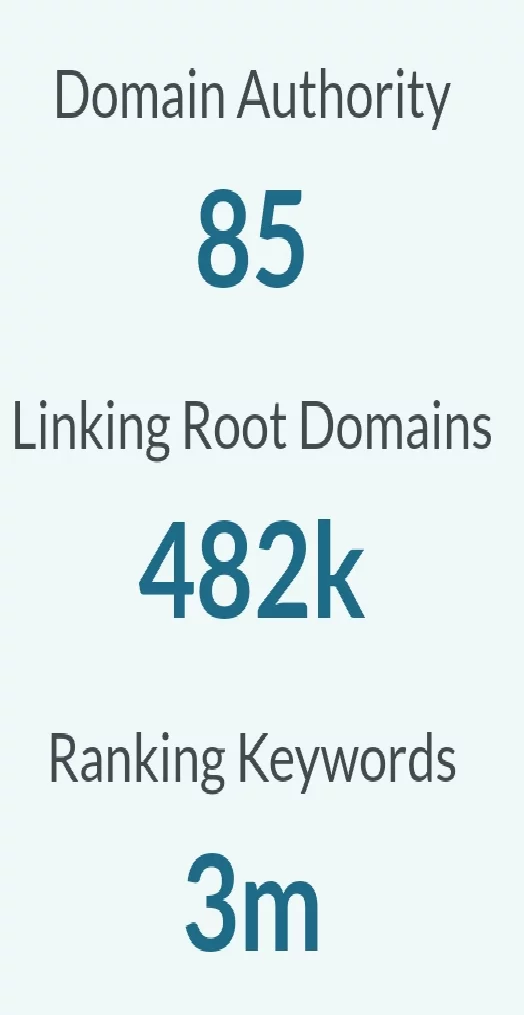
Strategy: Healthline, a health information website, has become a trusted source of medical information by prioritizing accuracy, comprehensiveness, and medical review. Their articles are authored by medical professionals, and they aim to provide accessible and reliable health information to their readers.
Impact: Healthline’s dedication to medical accuracy and authoritative sourcing has led to their content ranking high in search engine results. Their commitment to providing reliable health information has earned them backlinks from reputable sources, contributing to their strong domain authority in the health and wellness niche.
8. QuickSprout
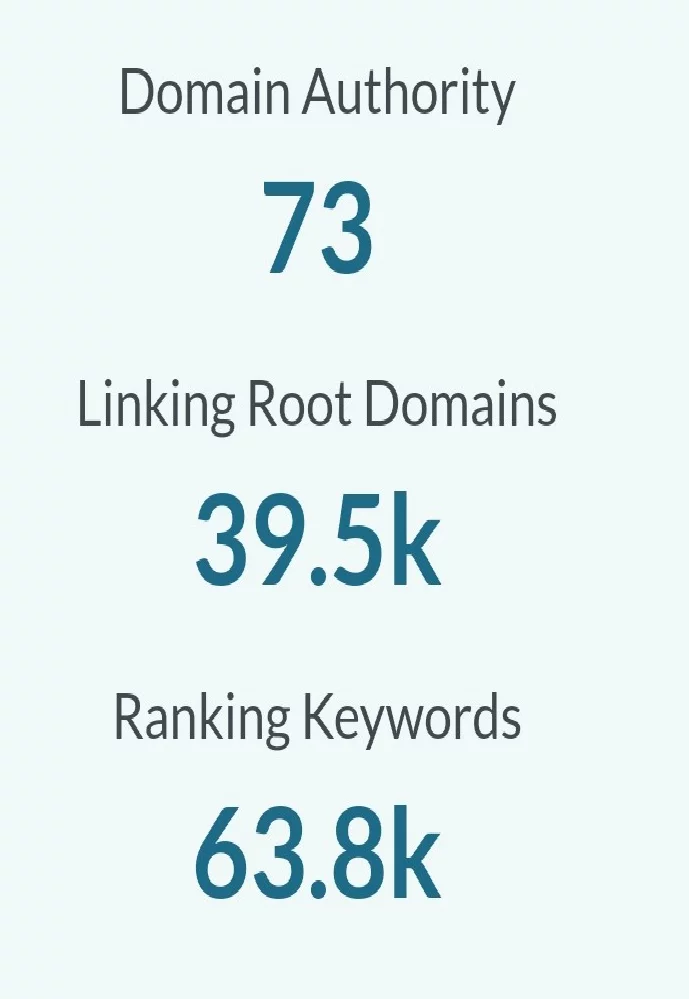
Strategy: QuickSprout, a digital marketing blog founded by Neil Patel, focuses on comprehensive guides and data-driven content. They delve deep into various digital marketing topics, offering step-by-step instructions and actionable advice to their audience.
Impact: QuickSprout’s detailed guides and tutorials have positioned them as a go-to resource for marketers seeking practical insights. Their content’s depth and quality have garnered them a loyal following and strong backlink profiles, contributing to their high domain authority in the digital marketing space.
Conclusion:
By embracing the power of quality content creation, thought leadership, social media engagement, collaborations, and case studies, businesses can transcend the limitations of traditional link building. Real-life examples of successful companies and the utilization of powerful tools like Majestic, Ahrefs, Pitchbox, and more further reinforce the potential to cultivate a strong online presence.
As domain authority becomes the cornerstone of online credibility, it’s essential to recognize that authority is built over time. Each strategic step contributes to the puzzle of establishing expertise, credibility, and recognition in a vast digital landscape. From sharing original insights to engaging in collaborative ventures, every effort contributes to the collective journey toward domain authority.
FAQs on Domain Authority:
Does domain authority guarantee high rankings?
No, domain authority is just one of many factors search engines consider when determining rankings. While a high domain authority can indicate a strong website, other elements like content quality, relevance, and user experience also play vital roles.
Are there tools to measure domain authority?
Yes, there are tools like Moz’s Domain Authority, Ahrefs’ Domain Rating, and SEMrush’s Authority Score that provide estimates of a website’s authority. These tools help marketers gauge their progress and make informed decisions.
How can social media contribute to domain authority?
Active engagement on social media platforms can enhance brand visibility, attract more traffic, and potentially lead to valuable backlinks. Sharing quality content and engaging with your audience can indirectly contribute to building domain authority.
Is domain authority the only factor for SEO success?
No, domain authority is just one of many factors that influence SEO success. Content quality, user experience, mobile-friendliness, page load speed, and keyword optimization are also crucial for achieving high search engine rankings.
Can domain authority be purchased or manipulated?
No, genuine domain authority cannot be purchased or manipulated through unethical means. Authentic authority is earned through valuable content, reputable backlinks, and a strong online presence built over time.



